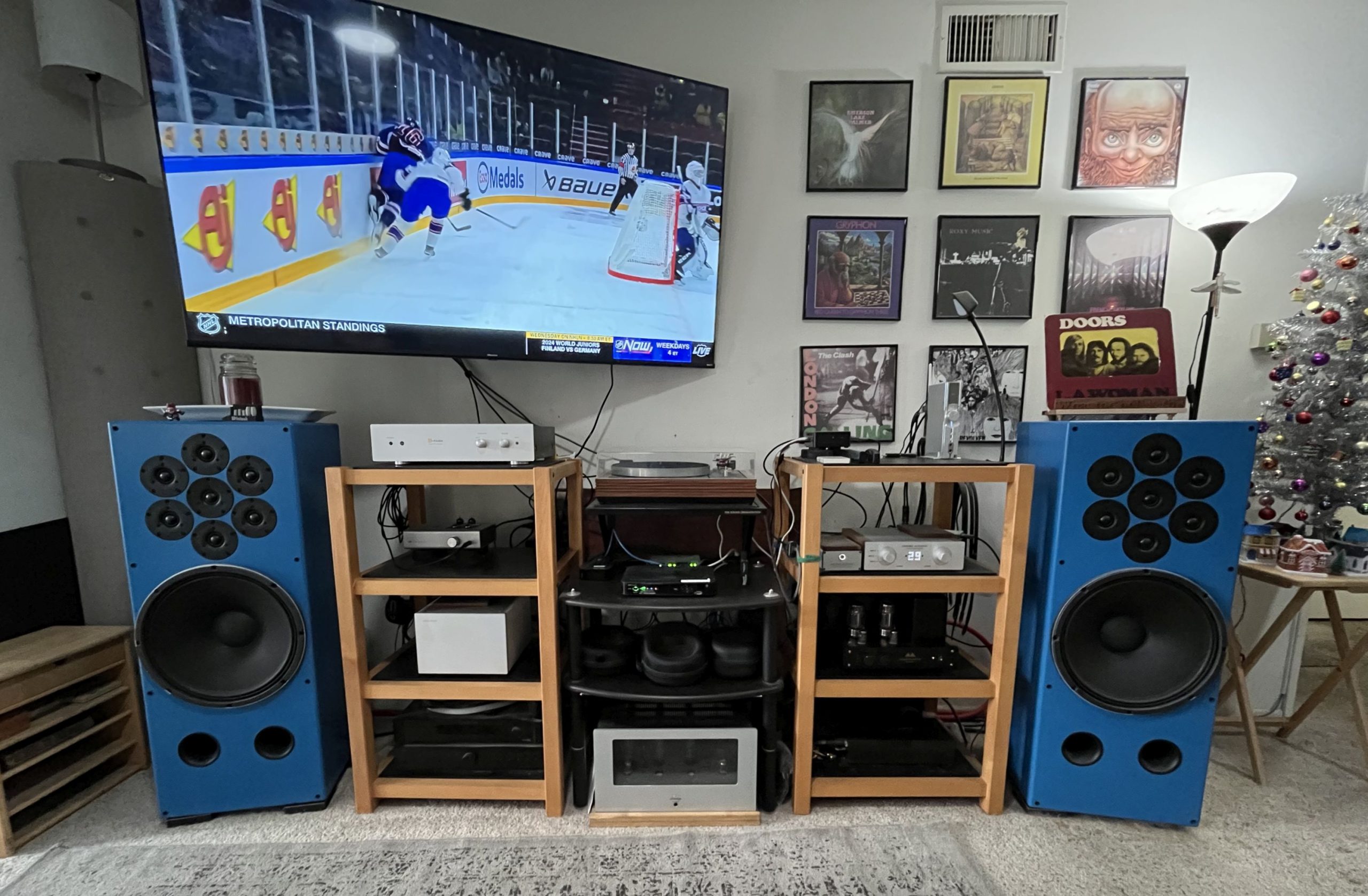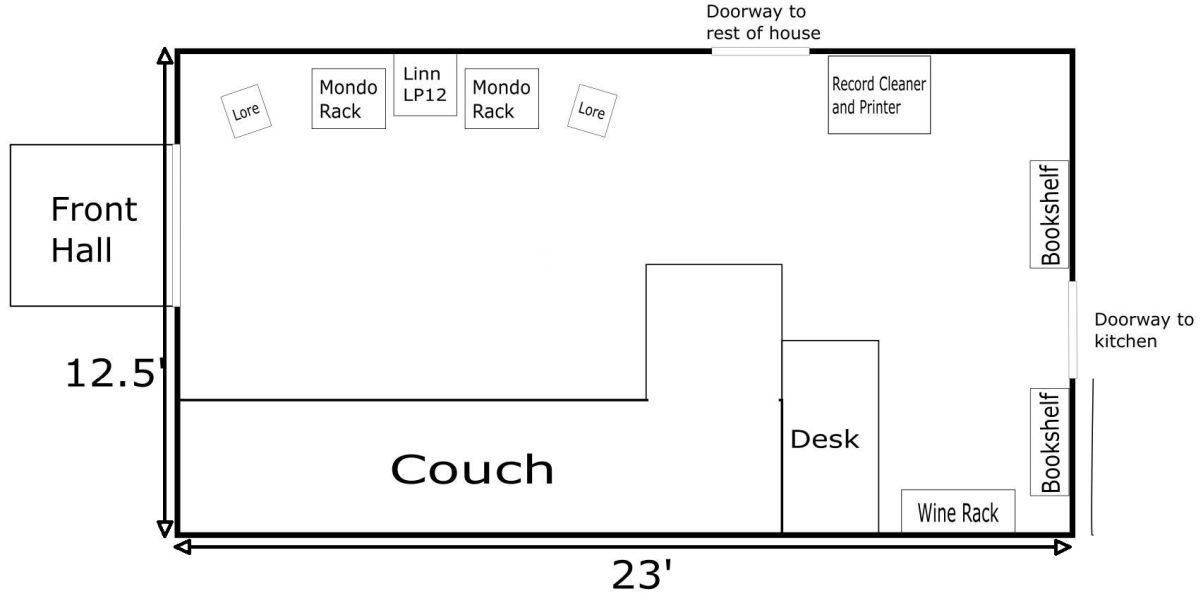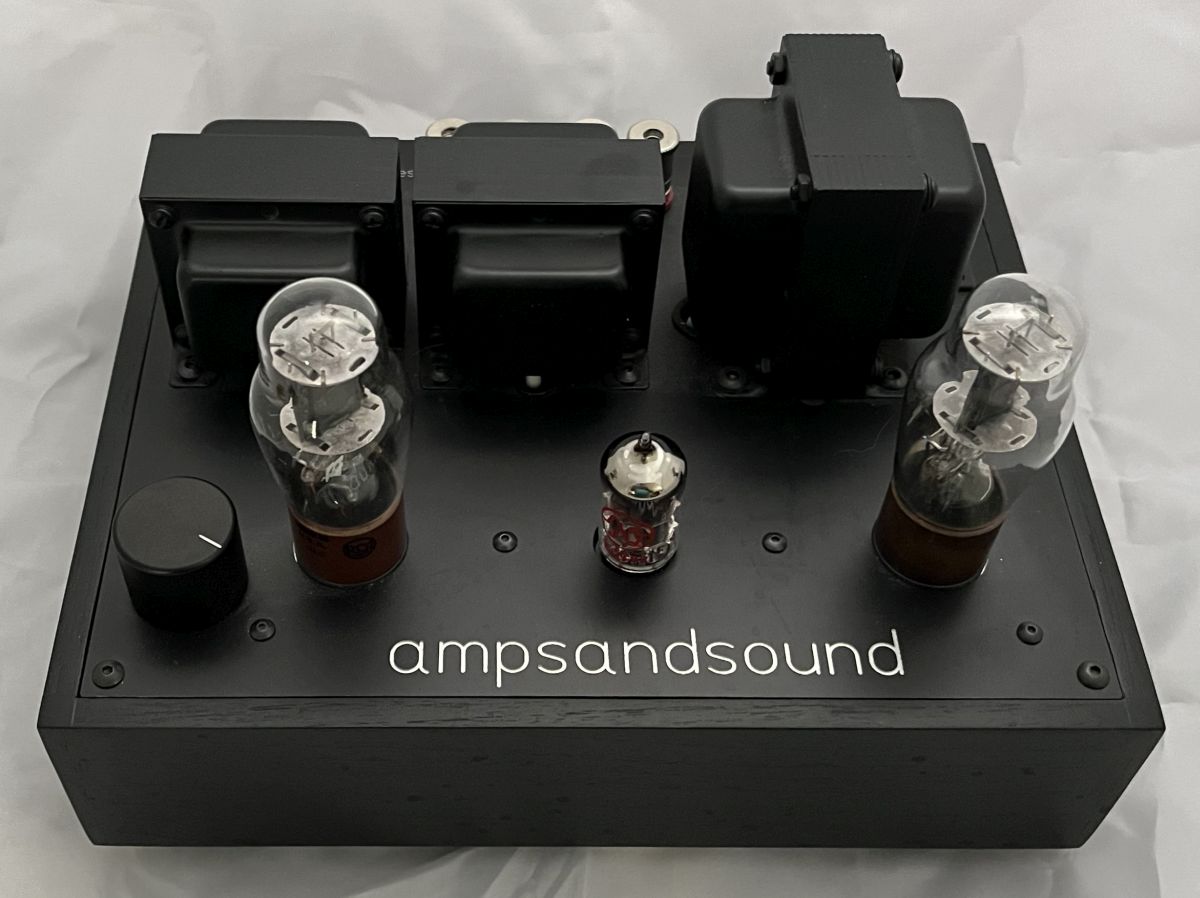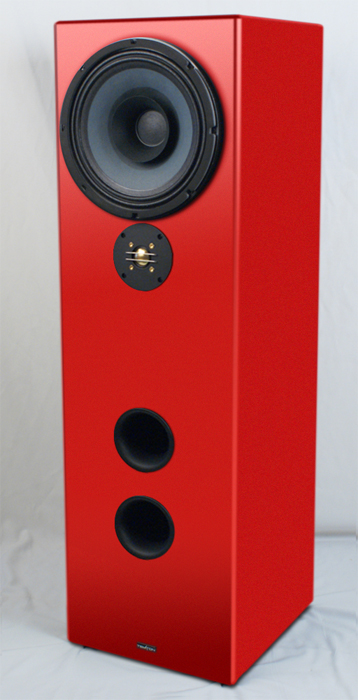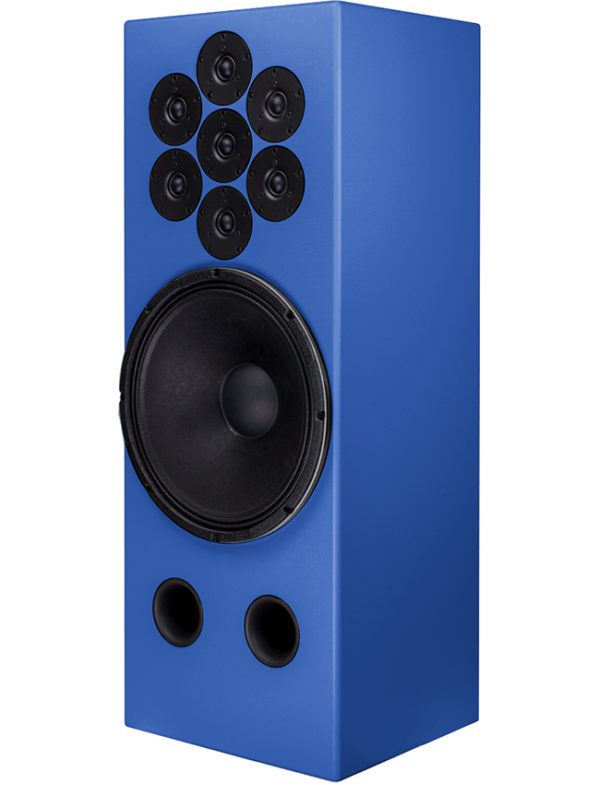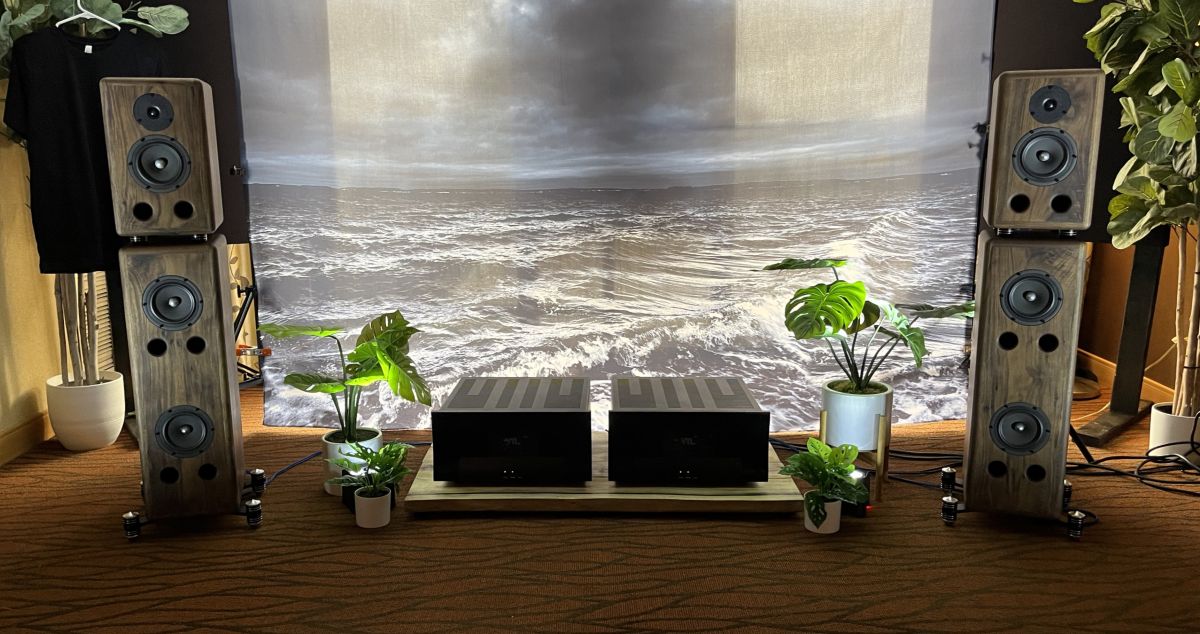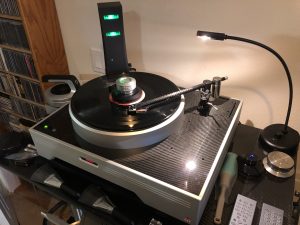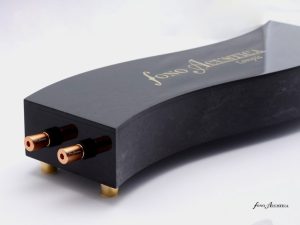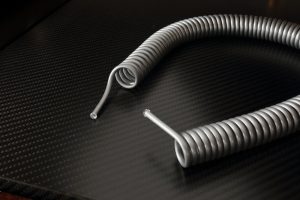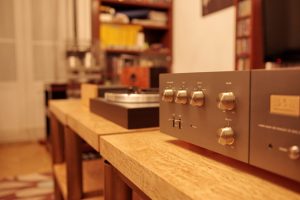Yes, I've used the same Linn LP12 turntable since 1984. It was a big deal for me, buying it back then, for a few reasons:
At $1370, including the Ittok arm and Valhalla power supply, it was fairly expensive at the time. It certainly was a lot of money for me, being just four years out of college.
It was at the height of the "turntable wars" brought to us all by The Absolute Sound, pitting the Linn versus apparently any other turntable on the market (though mostly the SOTA Sapphire), with the "other" turntable usually coming out on top. For me part of the significance was learning to trust my own ears and to not just go with whatever the established reviewing orthodoxy was at the time.
Anyway, I let my ears decide then, and haven't questioned my ownership of the LP12 at all over the years. Not to say it's the best or anything, just that it is very good, very musical, makes my records sound wonderful, and still does that after all these thirty odd years.
How many of you can say that about your table?
However, the older Linns had some serious issues, mostly related to aging Valhalla power supplies, which were such a big improvement when they first hit the market back in the early 80s. The Valhalla, for those who aren't familiar with it, was a circuit board that had its own 50Hz oscillator, regulated power supply and amplification, produce a very smooth, stable single speed signal to control the standard 50Hz AC motor that spun the platter.
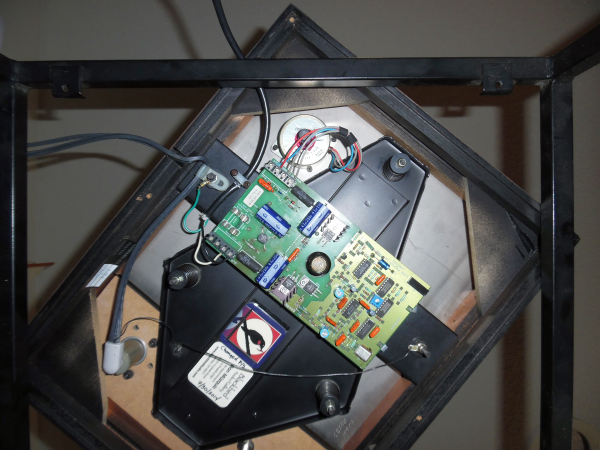
Though it worked very well, and was a big improvement over the original Linn "basic" power supply, it had major issues with running excessively hot, and would generally burn itself up after enough use. Most dealers back then would either repair them, or have rebuilt replacements available, for trade in at about $250 (including keeping your old board). My old Linn dealer (the wonderful, generous, late Jim Pennington) showed me which components usually failed the first time mine needed repair, and sold me a replacement instead of taking mine in trade, so every four to six years I would replace about $8 to $10 worth of rectifier and resistors to keep my Valhalla running, while always having a spare ready to drop in.
After thirty of this, I had enough. When my table started showing signs of impending power supply failure (noticeable by an increase in motor noise and a decrease in torque), I started looking at options for something other than another repair job. Also, keep in mind, I had to maintain my low cost, budget oriented stance, so no Lingo or Radikal upgrade for my Linn.
First, however a little side story. One thing that is important to owning most turntables I suppose, but for a Linn in particular is having a real turntable specialist nearby. Turntables are, after all, mechanical contraptions, not really pieces of electronics, and most of them require care, careful setup and tuning to work their best. Not all do (Rega's wonderful tables come to mind, especially if you use one of their cartridges), but those with suspensions that need to be tuned, arms that need to be setup, and cartridges that need careful, proper alignment can benefit from an experienced dealer or technician. This is especially so if you aren't someone who does this very often.
For me, cartridge setup is no big deal, and I have my Wally Tractor, Wally Skater, and Shure Stylus force scale to handle that, but not having a special Linn Setup Jig, certain aspects of maintaining the Linn (like tuning the suspension) I've left to trusted dealers. So, before embarking on this power supply quest, I had the table fully serviced by Dan Musquiz at Blackbird Audio in Santee, CA. Though not a Linn dealer, his many years experience do include being a real expert in Linn setup, so I knew my Linn would be operating at its mechanical best.
First try – something old, a home made DC motor / power supply kit
Going through some boxes in storage, I ran across a box from my old days with Listener magazine. When I opened the box, my first thought was "Oh shit, I thought I gave this back to Artie years ago…" because inside was a homebuilt kit using a DC motor and outboard power supply unit, based on an Origin Live DIY kit. Artie had written very positively about this back in Listener around 1999 or 2000, I believe liking it better than the Valhalla, but not quite as much as the Naim Armageddon that he used at the time. After a quick email to him to see if he wanted it back or if it was okay to try it in my Linn, it was off to visit Dan to have him install it for me.
After getting the table back in my system, I was quite surprised by the sound of the system, and very pleased. Speed stability was excellent, noise floor was really low, and the overall sound of the system was noticeably more neutral than I was used to. Some of the well-known Linn mid-bass bloom was gone, everything was a little more transparent, a little more lively. Plus, for the first time ever I could switch easily and electronically between 33 or 45 rpm, something the Valhalla (a single speed power supply) could not do.
Though the sound was very different from what I was used to, and though I found it interesting, in the back of my mind wasn't 100% sure I liked it better than what I had from a properly running Valhalla. That is, there's something about the sound of a record played on a Linn, though maybe not the most accurate playback, is stunningly musical and enjoyable. I was looking forward to a long period of seeing if this homemade DC motor/power supply would improve on the Linn's shortcomings without negatively impacting the beauty of the music or the Linn sound.
Then, about two weeks later, the motor bearings started making all sorts of noise, and the system became unusable. I believe this was probably caused by the effect of the kit sitting in a garage or storage facility for about twelve years, where excessive summer heat and the dry, uncontrolled environment probably caused some corrosion or something in the bearings. It was time to put the original Linn AC motor back in.
Second Try – the Hercules II power PCB (approximately $300).
I had been reading about the Hercules II power supply on a few audio discussion sites, and was intrigued by it. The idea of a new, drop in replacement for the Valhalla that would offer similar operation (and claimed improved sound quality) that would also allow for push button electronic switching between 33 of 45 rpm was just what I was looking for. The fact that it sold for less than what it would cost to have one of my dead Valhalla's boards repaired made it more interesting (replacing the rectifier and resistors as usual didn't work this time). The Hercules II is manufactured in Hong Kong, and distributed in North America by Stamford Audio in the UK. However, it appears that the easiest way to purchase one is via their eBay store or direct from the manufacturer via eBay (search for Hercules II, and make sure the seller is honmo2000). I had an easy time getting one, as my wife was traveling to Hong Kong, and made arrangements to pick one up for me from the manufacturer while she was there.
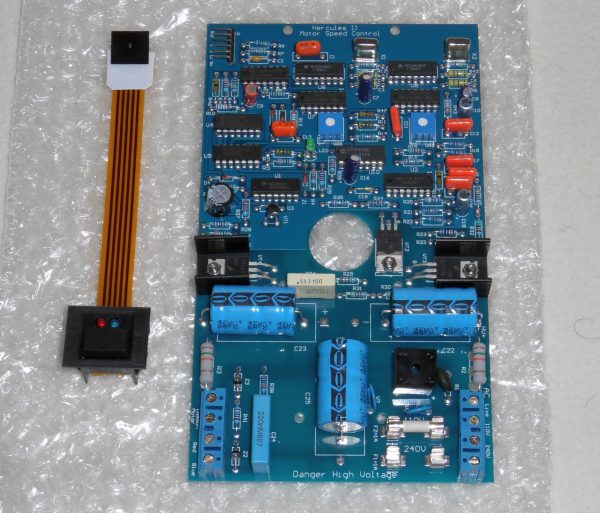
Installation of the Hercules II was very quick and easy, especially since I had removed the Valhalla PCBs many times, and had the procedure down. If you've never taken a Valhalla board out of your Linn, please remember that you need to unplug it, let it sit for a while, and be extremely careful, handling it. The capacitors on the board hold quite a charge, and injury (some claim even death) is a risk if you discharge them into your hands.
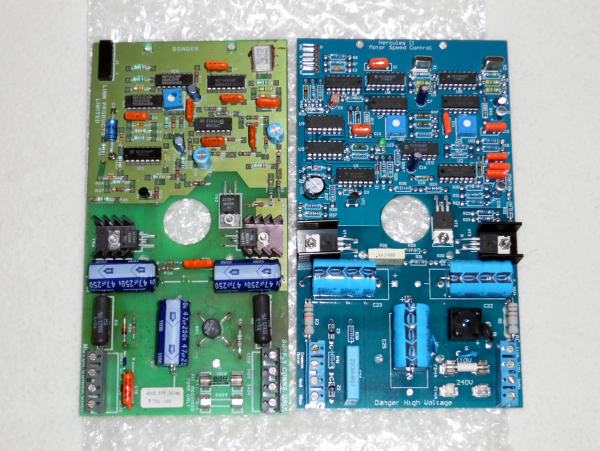
The Hercules II also comes with a new power switch (with both red and blue LEDs) so you have to pop the old switch out and install the new one. Honestly, the whole thing took about half an hour. Before putting it back on the wall shelf where the Linn normally resides, I plugged the table in, and used a strobe disk to check speed accuracy. On a Valhalla (or Hercules) powered Linn, the speed adjustment actually comes from the tilt/height of the motor itself, which determines the actual position of the belt on the motor pulley. Nice thing about this method is that once it's set, it stays there. In all the years I've had my Linn, the only time I ever had to adjust the speed, was this time, re-installing the motor. It's been rock solid (again) ever since.
So after installing the Hercules II and making sure the speed was correct, I set it back in the system and had a listen. First thing I noticed, before even lowering the arm, was the very small motor noise I heard for the past several years was gone. Granted, I had to be within a couple inches of the motor to hear it before, but I knew it was there. Now, it was gone. I love silence sometimes. The next thing that was even more noticeable was that the motor spun with more force (or more appropriately, more torque). Of course I dust every record before playing, and use a Kinetronics anti-static brush (better known in the photo industry than the audio industry). When the Linn had the Valhalla power supply, two things would always happen when I dusted a record. First, the motor noise increased, sounding much like it was under strain, and second, it would slow down quite a bit. So here I was dusting the first LP I was about to play with the Hercules II power supply, and no noise or slow-down was noticeable. I was encouraged.
First LP up was Jimmy Buffet's Volcano, just the first two tracks for a quick test. "Fins" was lively, and had great pace, and the cowbell at the beginning really rang through with clarity and authority, but otherwise not really a great track for seeing what the new power supply could so. But, next up was "Volcano" which exhibited a very nice, punchy bass line, and, well, you could hear how Buffet was having so much fun singing this song.
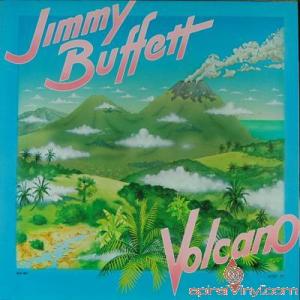
Next up was an early pressing of Rickie Lee Jones debut album. I've had this album since the day after she appeared on Saturday Night Live (when it was still actually called Saturday Night) in April 1979. Just seconds into the opening track, "Chuck E's In Love," I really knew something special was happening in my system. The opening notes just jumped out at me and rolled into the room. Yes, this is an old audiophile staple, and I probably should buy the new 45-rpm double disk version now available, especially since 45 is now just a click away, but for now, I'm happy with the original. I listened to the whole album, and it was one of those "can a power supply really make that much difference" moments.

The Linn driven by the Valhalla had excellent speed stability. In thirty years I never felt that to be an issue, but the Hercules II simply locked in the speed and played with a stability that was uncanny. Very noticeable on any and all sustained notes. I thought about playing favorite pianos LPs later, as that instrument seems to exhibit the effects of speed instability more than most.
But still listening to Rickie Lee Jones, on the cut "Easy Money," the string bass, especially in the opening moments, had all the tone, bloom and character that I've known so well, but somehow sounded more real, more full. The small mid bass "coloration" that some people carry on about with the Linn, seemed less like a problem, and more like how the record was supposed to sound.
Over the next few days I grabbed several old favorites out of my record collection, and sat in wonderment over the tuneful, forceful, and nearly rhythmically perfect sound. Without loosing any of the character that I love so much about the Linn, pretty much every aspect of it was just, to coin their own tag line from the mid 1980s, simply better.
So impressed was I over the sound of my system now, I decided to undertake a commitment to listen to every record in my collection over the next few years. Some I haven't listened to in many years, others in a few decades, but still, records sound so good right now, I want to her every record I ever thought to buy again.
There is a reason I gave this a Positive Feedback Writer's Choice award for 2014. But wait, there's more…
Third Try – the Mose + Hercules II outboard power supply (approximately $500).
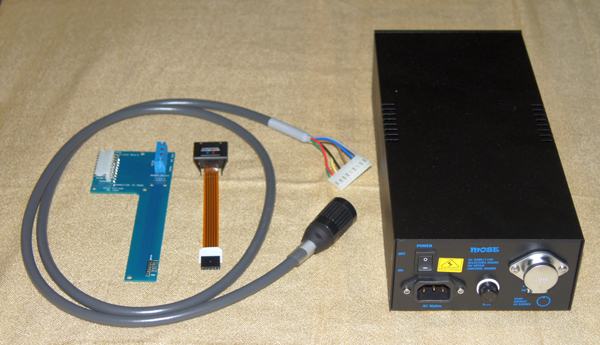
The Mose version of the Hercules II power supply uses the same PCB as the regular upgrade, but moves it to an outboard case that also includes some power line conditioning built in. You can either buy a complete Mose Hercules II, or of you already have a Hercules II, you can get just the case kit and move your PCB from the table to the case. In order to have complete kits to compare, I acquired a complete Mose Hercules II with a new PCB. It also comes with a small connector PCB to mount in your Linn, a tether cable to go between the Mose case and the table, and another new switch for the table.
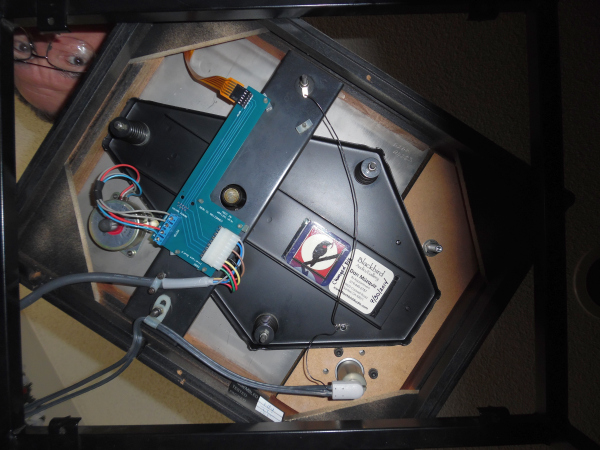
All I can say is, whatever improvement I heard in my system from the Hercules II, moving the power off board with the Mose + Hercules kit resulted in the same incremental improvement yet again. Speed stability seems about the same (still noticeably better than the Valhalla), but everything else, noise floor, dynamics, flow, all stepped up just a little bit more. Music seemed more expressive, more colorful, and more solidly driven.
The claim from the manufacturer is that moving the power supply off board moves electrical fields and interference farther away from the sensitive low-level signals of the cartridge. This results in lower noise and allows the cartridge (in my case a low output Dynavector 19A) to operate in a cleaner electrical environment. Whether that's the reason or not, from I hear it seems to be a reasonable explanation.
Music sounds easier with the Mose + Hercules II, and more natural. And yet, the characteristics of the LP12 that make it so musical with real music, rather than just a handful of audiophile demonstration records, has not been diminished at all. So where I can get lost in a beautifully recorded and played live recording like Art Blakey and the Jazz Messengers Keystone (an old Concord Jazz release), I can also totally get into an old favorite LP that maybe isn't so well recorded, like Vanilla Fudge's Near the Beginning.
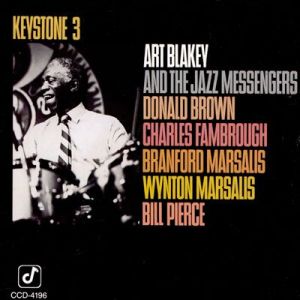
Let's just say any thoughts I had of replacing the Linn for a new table anytime in the near, or even distant future, have been put on indefinite hold.
In summary, if you have a Valhalla powered Linn, and want to breathe new life into it, I highly recommend either version of the Hercules II power supplies. The Mose is better, but even the internally mounted Hercules II gets the job done remarkably well, at a price even a bargain hunter like yours truly can appreciate.




